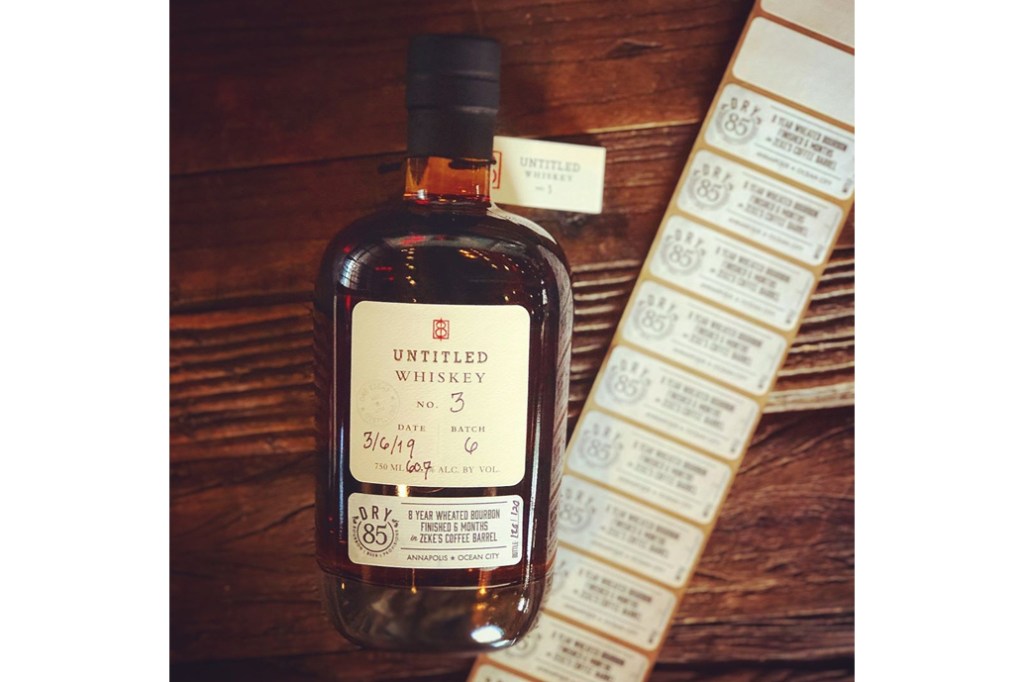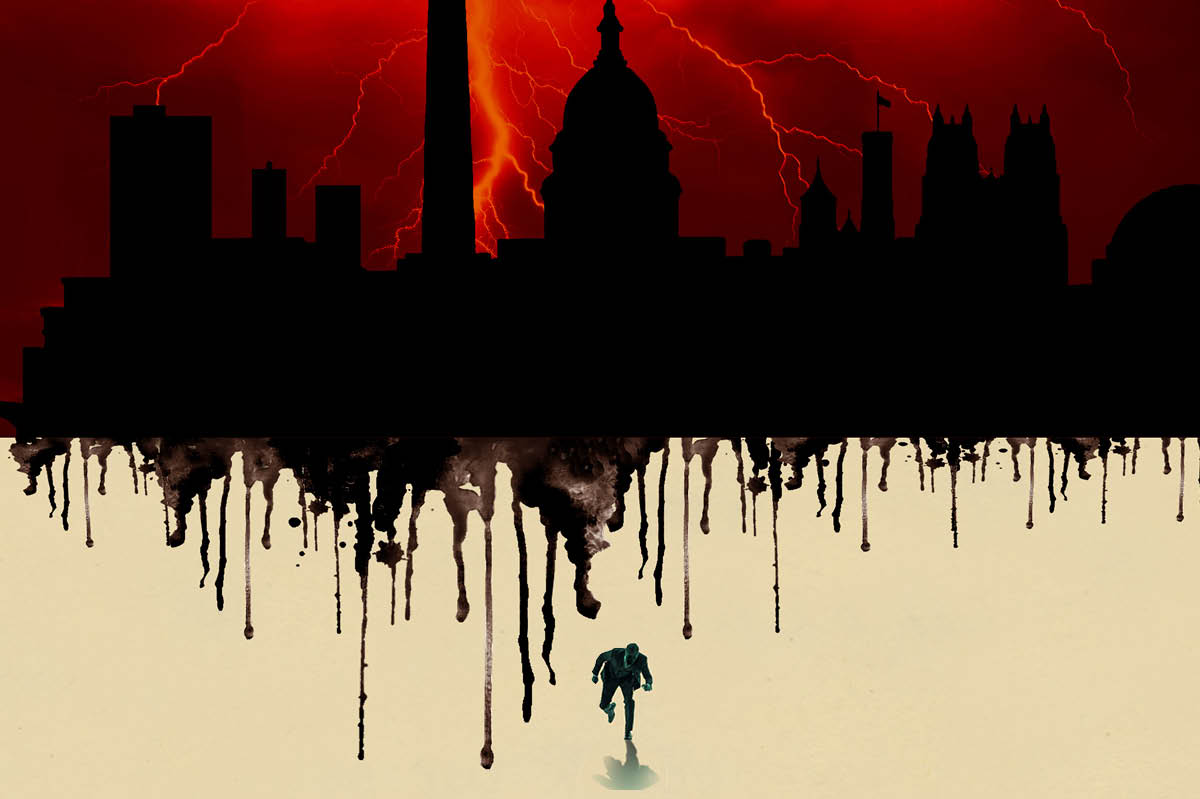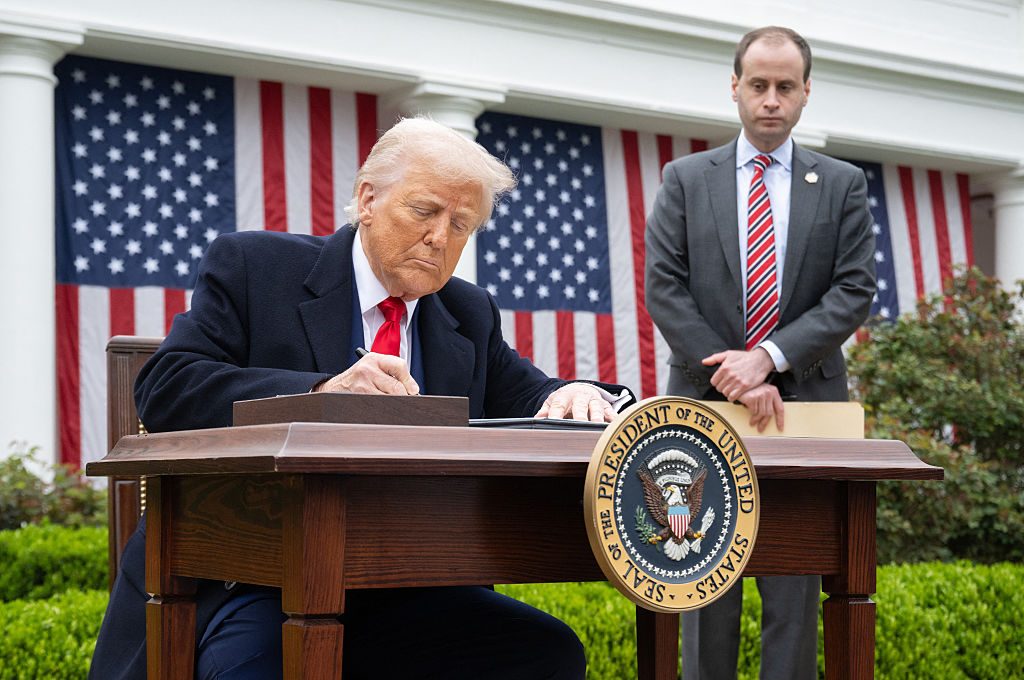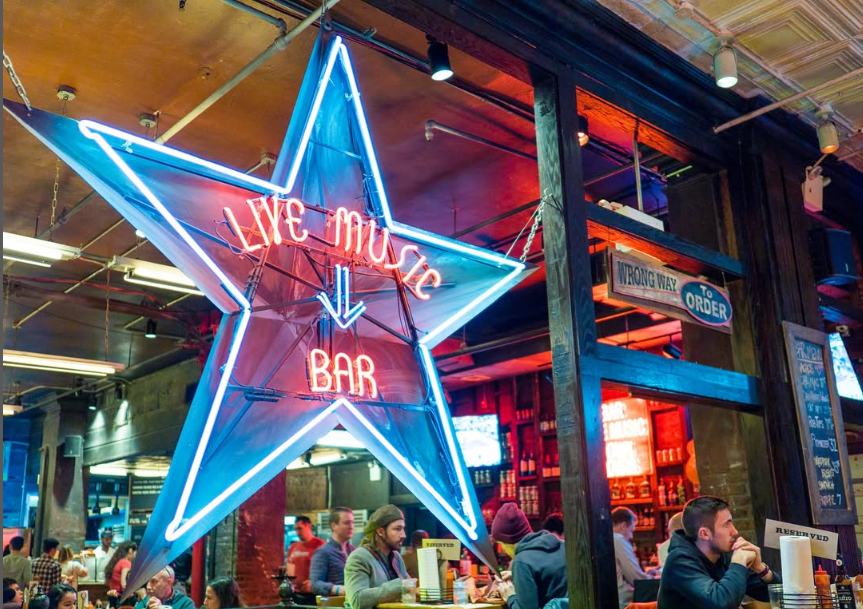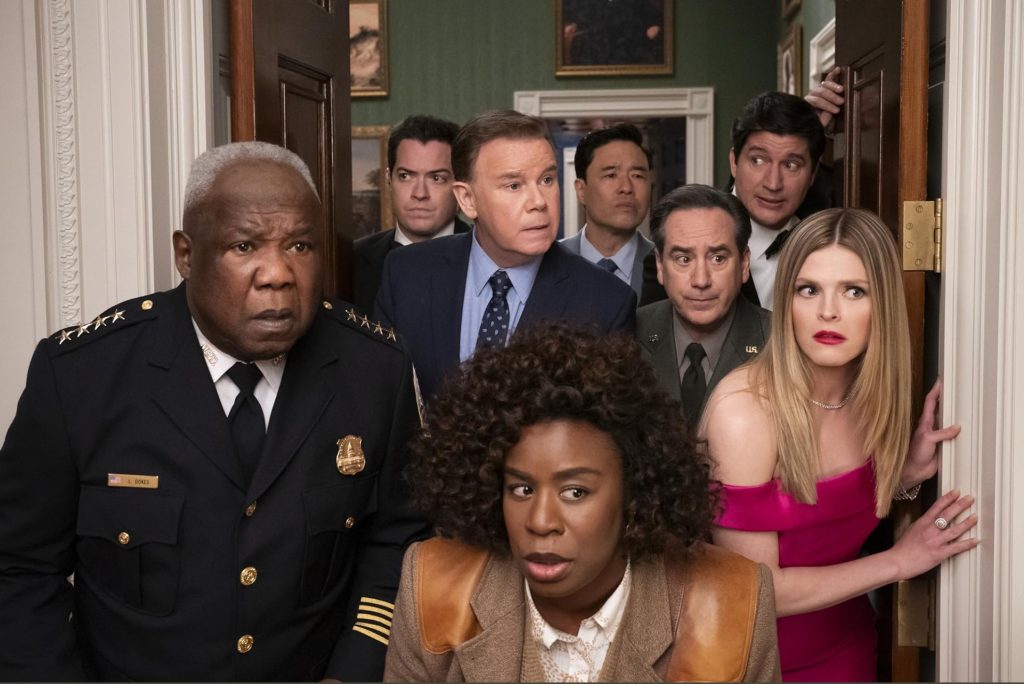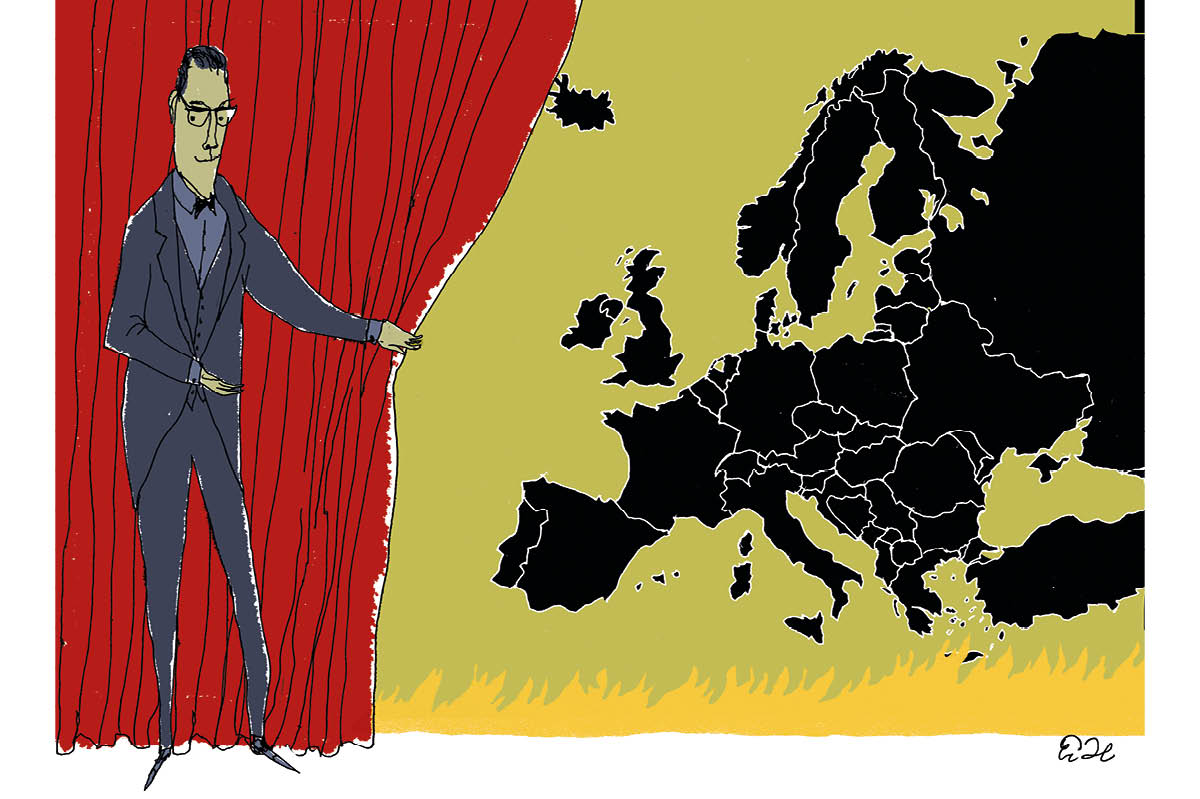This article is in
The Spectator’s December 2019 US edition. Subscribe here.
A white cross once rested over the door of the windowless warehouse at 1135 Okie St NE in Washington, DC. Residents seeking a reprieve from the street gangs and drugs that plagued the Ivy City neighborhood would huddle on the second floor and listen to the holy men of Old Ship of Zion Baptist Mission Church preach deliverance.
Deliverance came. Crime plummeted. The violence and poverty along H Street gave way to Zagat-rated restaurants, organic markets and boutique bars. The closest thing you’ll see to weapons now in Ivy City is at Kick Axe, a new watering hole offering flannel-clad Capitol Hill staffers the opportunity to have a drink and, well, throw axes at wooden boards. The multigenerational families who once lived in the area’s townhomes and row houses were replaced by co-habitating lobbyists and their rescue pets. These people needed a new place of worship. The Old Ship set sail to make room for One Eight Distilling, makers of the first ‘grain-to-glass’ DC whiskey since Prohibition.
Pilgrims now visit the warehouse to admire hundreds of alcohol barrels and a test still that churns out everything from watermelon brandy to a Christmas-pudding spirit currently in development. The plain brickface has been opened up with giant panes of glass that beckon passersby to stare awestruck at a towering Barison still capable of producing 190- proof vodka in six hours, rather than the standard 23.
One Eight imported the still from Milan, but the sacks of grain that cover the walls are all locally sourced. There’s Appalachian Allspice to flavor the gins and heirloom corn and rye from the region’s burgeoning farms, so consumers know they are getting ‘grain to glass in-house’ drinks, rather than the anonymous, coldblooded neutral grain spirits that Big Liquor relies on for its wares.
‘If you don’t see grain in a distillery, that’s suspect,’ says Cara Webster, a customer so taken aback by One Eight that she signed on to lead its public relations team. ‘We’re all about being transparent.’
Ah, transparent, that watchword of the moment — the last bipartisan term in a sectarian capital, the virtue that politicians worship in speech and abhor in practice. Transparency is the tribute that vice pays to vice. One Eight knows its constituents. The company derives its name from Article 1, Section 8 of the Constitution, which established the district as the nation’s capital. Article 1, Section 8 also gave Congress the ‘Power to lay and collect taxes’, which in turn gives DC residents the ability to afford expensive bottles of craft liquor.
Things are looking up for ol’ One Eight: sales rose tenfold in the past year. Washington is selling the most passes on the Whiskey Rebellion Trail that takes aficionados on a four-city tour of craft distilleries from Pittsburgh to DC to remind them that American liquor doesn’t start and end in Kentucky. Employees at One Eight are planning a January 11 blowout to celebrate the fifth anniversary.
Everything is good at One Eight. The vodka is somehow bearable. The rye is melt-your-face fantastic. The bourbon is bourbon. It has the world’s only good gin. There’s another gin that spends a few months in charred bourbon barrels before it is spirited away into the distillery’s octagonal District Made bottles. It is ‘bold and assertive with a high enough proof to be considered the wild child of the family’, according to One Eight’s website. I’m going to take the distillery at its word because after drinking the gin my notes became illegible.
For all the success — five liquors in the District Made line and nearly two dozen experimental offerings (15 of them whiskeys) in the ‘Untitled’ series that have won numerous medals in industry competition — the people behind One Eight are still unsatisfied. The target of their ire goes beyond Big Liquor: it is you, the consumer.
They’re at the bar when you enter. Cara is serving a drink to Ulf, a tattooed, nose-ring adorned professional bartender. They trade stories about a local mixology legend: ‘Our muse and spirits guru,’ Cara says — a man who in addition to winning a Spirited Award for Best American Cocktail Bar, will soon marry the girlfriend he stole from Ulf.
You are handed Untitled #3, a whiskey that has spent a month aging with some coffee beans. You do not know what the Spirited Awards are, nor have you heard of the muse and his world-famous cocktail bar. You pretend to give the glass a sniff because you know this is the proper thing to do, even if smoking robbed you of the sense years ago. You stare at liquor the color of synthetic motor oil and at best you can tell its taste is…well, the opposite.
You are lucky that Ulf is also a first-time visitor. He asks probing technical questions about the equipment and answers the hypothetical ones Cara throws out there, the ones that mystify you, a seasoned but incurious drinker. You hit the back of the warehouse where hundreds of barrels sit in a room devoid of air conditioning and heat, the better for nature to take its course on the spirits aging inside. Cara finally throws out a softball: ‘What are the rules for making bourbon?’
‘Three years! It has to be…’
‘There are no more rules,’ Ulf interjects.
The veteran bartender gets the gold star.
‘Craft distilling is just now having this moment when rules and preconceived notions are being thrown out,’ Cara says. ‘People are finally being adventurous,’ Ulf says.
Of course, One Eight still abides by some rules. The rye is made from a mash that is at least 51 percent rye, the bourbon from a majority corn mash. It houses the spirits in the proper charred American oak barrels that can be used only once before they are exchanged for new ones.
One Eight is still plagued by a Palo Alto mindset: that everything old must be made new again, that tradition must be smashed in the name of rebirth, that iconoclasm should not only be tolerated but welcomed as liberator. It is not enough to reinvent the wheel and make a whiskey that better helps you get into bar fights; we, the craft distiller, must deny that the wheel was good in the first place. You are not surprised to learn that a Silicon Valley biotech wizard co-founded the company.
We are in the Spirit Safe now, a private tasting room with leather chairs and a glass cabinet lined with 15 bottles from the Untitled series. Medals rest on the necks of the award-winners. Cara pours generously, as she and Ulf discuss the ‘flavor profiles’ of various grains and the ‘creamy mouth feel’ of the vodka. You ask them if there are any downsides to craft distilling. ‘The bros,’ they both say. ‘The type who walks in and says “I only like Bulleit rye.”’
‘They’re not comfortable tasting whiskey. They only go off of their friend’s recommendations,’ Cara says. ‘I want them to say, “I like this whiskey because” — I want them to give a reason.’
You ask to taste the out-of-circulation Untitled whiskey that sports the most medals. Cara demurs because, ‘You’re dipping into just drinking something based off of a recommendation.’
It is not enough for you to enjoy a product, even their product. No, you must prove to the discriminating distillers and judgmental bartenders that you are worthy of it. You must talk about your feelings.
I’m going to need a whole lot of rye first.
This article is in The Spectator’s December 2019 US edition. Subscribe here.



